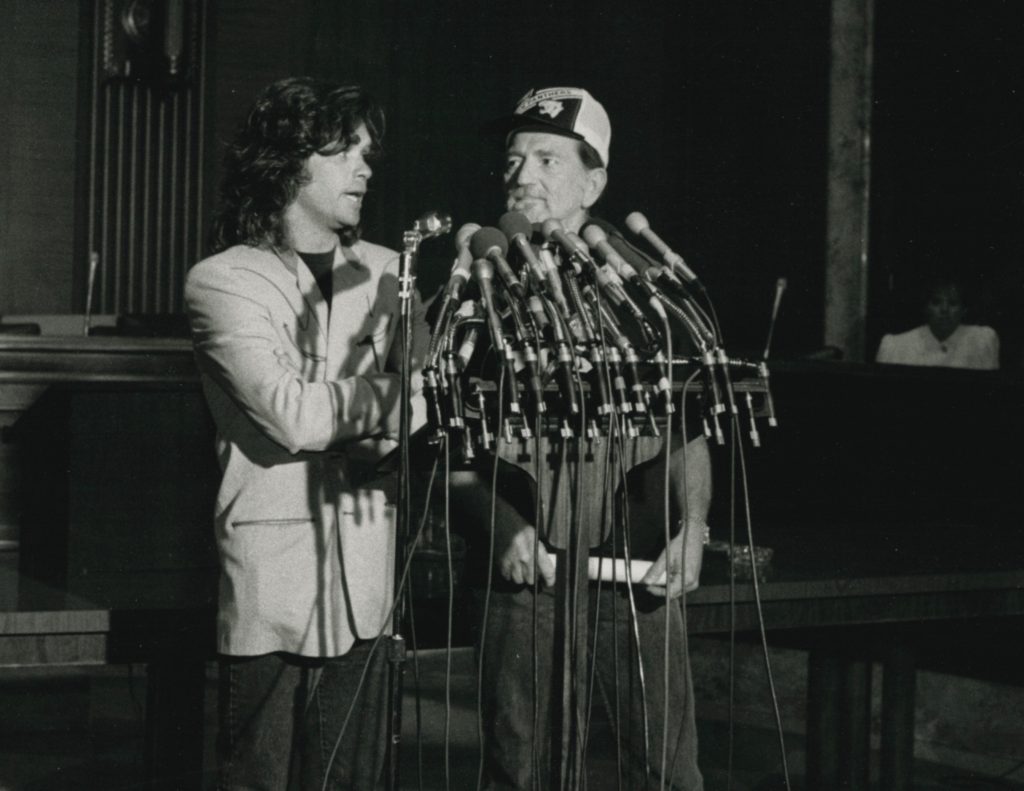What is the National Family Farm Coalition?
National Family Farm Coalition (NFFC) and Farm Aid are like siblings. The organizations began just a year apart during the 1980s farm credit crisis (Farm Aid in 1985 and NFFC in 1986). They have grown up working closely to support and strengthen family farmers in the 30 years since. NFFC is one of Farm Aid’s top grantees, receiving more than $807,000 since 1989. Kathy Ozer, NFFC’s executive director for 24 years, who passed away on January 22 of this year, was a respected colleague, adored friend and mentor to many Farm Aid staff members.
National Family Farm Coalition is made up of twenty-five grassroots family farm and rural organizations that represent 19 states. Each member organization brings unique strengths and resources, with NFFC staff based in Washington, D.C., to offer a national voice on issues impacting family farmers and rural communities. One of those issues is farm credit.
NFFC and Farm Credit
NFFC has been a major advocate for fair credit policies and the establishment of new farm credit programs and fair practices at the United States Department of Agriculture (USDA). Kathy was one of the main authors of the landmark 1987 Agricultural Credit Act, and NFFC and its member organizations worked to get the Act passed. Farm Aid artists Willie Nelson and John Mellencamp attended Congressional hearings and pushed its passage in time to assist farmers in crisis. Tens of thousands of farmers were helped by the Act, which allowed them to restructure their debt and remain on their land.
 John Mellencamp and Willie Nelson testify before the Senate Agriculture Committee in 1987. Photo by Lloyd Wolf.
John Mellencamp and Willie Nelson testify before the Senate Agriculture Committee in 1987. Photo by Lloyd Wolf.
Following the passage of the Ag Credit Act, NFFC and Farmers’ Legal Action Group (another long-time Farm Aid partner) held training sessions for farmers and farm advocates. The goal was to assist farmers and ensure their rights under the Act were being upheld. These trainings were an important foundation for what is now the Farm Advocate Link, a network of farm advocates who help farmers navigate the complex world of farm lending, state and federal regulations, contracts and government programs.
NFFC’s credit work also enabled minority farmers, who were historically denied credit through the USDA Farm Service Agency, to file discrimination claims and seek redress under the law. The work of Kathy and NFFC in the early-1990s influenced Congress’s funding of the Minority Farmers Rights Act, which was the first federally funded bill to assist minority farmers. It is now known as Section 2501 of the Farm Bill.
Credit in Today’s Farm Economy
In 2009, NFFC, Farm Aid and more than 50 farm service groups sent a letter to Secretary of Agriculture Tom Vilsack and Secretary of the Treasury Timothy Geithner. The letter urged them to expand credit and refinancing options for farmers, allowing farmers to retain their farms in the face of the economic recession. Two years later, NFFC, Farm Aid, Food and Water Watch, and the Rural Advancement Foundation International-USA published Don’t Bank on It: Farmers Face Significant Barriers to Credit Access During Economic Downturn. The report summarizes the results of a national survey of farm credit counselors and farm advocacy organizations. Don’t Bank On It highlights the recession’s impact on farmers’ credit needs and issued a clarion call for credit reforms.
Today’s drop in farm prices and tightening of credit demands this work continues.
NFFC continues to fight for fair and nondiscriminatory USDA lending programs and practices, and holds the USDA accountable for implementation of credit laws.



